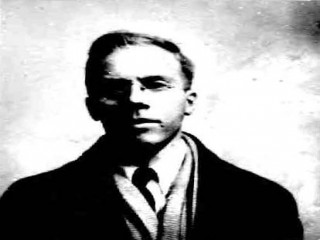
Conrad Aiken biography
Date of birth : 1889-08-05
Date of death : 1973-08-17
Birthplace : Savannah, Georgia, U.S.
Nationality : American
Category : Famous Figures
Last modified : 2011-05-10
Credited as : Author, and poet, Earth Triumphant
1 votes so far
CAREER:
Aiken's earliest poetry was written partly under the influence of a beloved teacher, the philosopher George Santayana. This relation shaped Aiken as a poet who was deeply musical in his approach and, at the same time, philosophical in seeking answers to his own problems and the problems of the modern world.
Aiken was deeply influenced by symbolism, especially in his earlier works. In 1930 he received the Pulitzer Prize for Poetry for his Selected Poems. Many of his writings had psychological themes. He wrote the widely anthologized short story Silent Snow, Secret Snow (1934). His collections of verse include Earth Triumphant (1911), The Charnel Rose (1918) and And In the Hanging Gardens (1933). His poem Music I Heard has been set to music by a number of composers, including Leonard Bernstein and Henry Cowell.
Aiken wrote or edited more than 51 books, the first of which was published in 1914, two years after his graduation from Harvard. His work includes novels, short stories (The Collected Short Stories appeared in 1961), criticism, autobiography, and, most important of all, poetry. He was awarded the National Medal for Literature, the Gold Medal for Poetry from the National Institute of Arts and Letters, the Pulitzer Prize, the Bollingen Prize, and the National Book Award. He was awarded a Guggenheim Fellowship, taught briefly at Harvard, and served as Consultant in Poetry for the Library of Congress from 1950 to 1952. He was also largely responsible for establishing Emily Dickinson's reputation as a major American poet.
After 1960, when his work was rediscovered by readers and critics, a new view of Aiken emerged—one that emphasized his psychological problems, along with his continuing study of Sigmund Freud, Carl G. Jung, and other depth psychologists. Two of his five novels deal with depth psychology.
Conrad Aiken's interest in Freud was reciprocated by the great psychoanalyst, who was equally interested in how Aiken used Freudian concepts in his fiction. Freud went so far as to call Aiken's Great Circle one of his favorite novels. At one point Freud expressed interest in meeting Aiken face-to-face to discuss psychoanalysis. Aiken agreed and set off to Europe, but by chance on the boat over met Erich Fromm, a Freud disciple, who convinced Aiken that it would be a bad idea for the writer to have sessions with Freud. Because of this, the two never met.
Author of books:
Earth Triumphant (1914, poetry)
The Charnel Rose (1918, poetry)
Skepticisms (1919, essays)
The House of Dust: A Symphony (1920)
Bring! Bring! (1925, short stories)
Blue Voyage (1927, novel)
Selected Poems (1929, poetry)
King Coffin (1924, novel)
And in the Hanging Gardens (1933, poetry)
Among the Lost People (1934, short stories)
Conversation; or, Pilgrim's Progress (1940)
The Soldier (1944)
The Kid (1947)
Ushant (1952, memoir)
Collected Poems (1953, poetry)
A Reviewer's ABC (1958, essays)
The Selected Letters of Conrad Aiken (1978, letters)
















